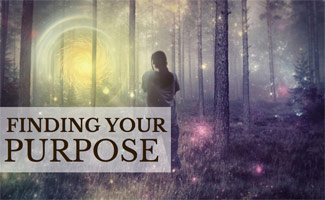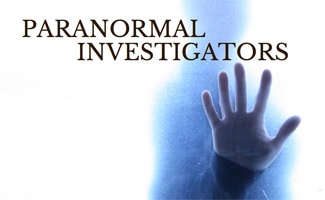To keep the lights on, we receive affiliate commissions via some of our links. Rankings remain impartial. Our review process.

Self-awareness and clarity of purposeful vision come in cyclical layers. In other words, we have answers that lead to new questions that offer new insights that propel us to new questions that open up epiphanies that inspire more questions. You see, the discovery of oneself is always unfolding and forever perplexing and new. We are all somewhere on this spiral journey, consciously traveling or not.
Whether you know your life’s purpose, have some idea but aren’t quite sure, or are at a complete loss regarding this question, this article is designed for you.
Purpose Driven Life
First of all, let me make it clear that I do not intend to suggest that I have all the answers, or any of the answers, for that matter. I am only qualified to write this article because I am a thoughtful seeker who keeps matriculate records of discoveries. I have also had infinite versions of this conversation with the people in my life for many years. That being said, let’s cut to the chase and talk about purpose.
Top-selling author and Christian leader, Rick Warren, has a best-seller titled, The Purpose Driven Life, (2003). He opens the book by stating that “it’s not about you”. That seems strange, considering that the quest to find one’s purpose in life is a very introspective and self-centered endeavor. How can it not be about me? I am the one looking for my purpose; it must be about me.
Selfishness vs Selflessness
Well, this proposes a dichotomy between selfishness and self-less-ness. And I believe these two cannot be separated. My first premise is that humans are, at the very core, selfish. And my second premise is that we are social beings. My third premise is that everything we do is about self-satisfaction; and self-satisfaction is, on one level or another, obtained by what we get from others. Understanding this about human nature is essential to uncovering your own purpose in life.
Consider a newborn baby. Every parent knows that you love that baby more than you ever thought possible. Is that selfish? My argument is yes, absolutely. We love how the baby smells and feels and looks and sounds. We love that the baby needs us and depends on us. The baby gives us a sense of meaning, value, and purpose in life. Likewise, the baby is satisfied by what we do for her; we make her feel safe and warm; we feed her and clean her and entertain her. Both parties in the relationship are happy because each receives what is most desired. Note that these desired qualities cannot be gained without the other person involved.
Getting and Giving at the Same Time
I once heard Dr. Phil say that the main quality that makes for the best relationship is when both sides get what they want. This stopped me in my tracks because it seems counterintuitive. After all, I was raised to believe that unconditional love is the most prized quality to aim for in personal development. Self-sacrifice, giving, and forgiving; these are the things I thought were required for creating the “best” relationships. Getting what I want seems manipulative and selfish. Then I thought about it some more and decided that selfishness does not necessarily include manipulations. In fact, it is the without manipulation component in getting what we most desire that is so exhilarating!
However, this is only satisfying when what we desire is on the higher order of “good” things. In the case of the baby-parent example above, love is the higher order quality that the parent subconsciously seeks. It is appropriate to point out here that the parent receives this love as a result of giving. While selfless, unconditional giving can result in this tremendous gift of love, it really only happens when the giving is pure and without manipulation.
By “pure” giving, I mean that you have risen above all the human emotions that have strings attached. This is the real challenge. This requires a balance of living within the limitations of human nature (i.e., we are selfish, and we are social beings) and the unlimited nature of spirit (i.e., higher order qualities).
Preventing Purpose
Let’s look at a classic example of a relationship that prevents us from rising to the higher order where we can find our true purpose in life. The reason addicts and enablers always seem to find each other is because while the addict gets a means to pursue the addiction, the enabler, a constant “giver” even to a fault, gets the satisfaction of believing s/he is needed. In this case, both parties receive what they most desire, but because their desires are rooted in human fault and failure, they never get untangled enough to find true purpose.
This example demonstrates how these people are merely acting out the basic qualities of human nature: selfishness, and finding self-satisfaction through relationship with others. Therefore, in order to find our purpose in life we need to move to the next level which is to be reflective and more intentional about our decisions. As we do this consciously, we produce a subconscious shift that literally cuts the roots and ties to toxic relationships and frees us to:
- Consciously know our purpose in life; and
- Resettle ourselves into relationships that make it possible for us to fulfill this purpose.
To do this, we have to achieve self-knowledge first, followed by relationship with others. Of course these two overlap all the time, so we can’t go through a linear process to find our life’s purpose. This fact makes the waters muddy, so to speak, so we often end up confused. Confusion is where many of us spend a lot of time.
Confusion can play an important role because confusion is what propels us into questioning, the precursor to reflective thinking. It is important however, not to get stuck in confusion. At this point, some left-brain thinking comes in handy. Back to the linear structure: self-knowledge first followed by relationship with others. Although they can’t really be separated, we can in fact, look at them and analyze them one by one in this order.
Identifying Self-knowledge
What are your passions? What most interests or intrigues you? What are your talents? What activities make you most happy? For most of us, the answers to these questions seem elusive because in our busy lives with never-ending “to-do” lists, we feel we can’t engage in the activities that fuel our passions. I am suggesting that you explore these questions anyway and indulge in finding, and owning, the answers. I believe that once you connect with your passions, your priorities will line up and be defended by a strict conviction in your heart. This will result in life changes such that the drudgery of daily life tasks will coexist in perfect balance with the true essence of who you are, and who you were meant to be.
So go ahead and just think about these questions. Talk over your ideas with a close friend or write your thoughts down in a journal. Expressing your ideas as you explore them will help you identify the qualities of your true nature. Being able to articulate them will help to seal them in your psyche so that they become the priorities that direct your decisions.
Keep in mind that the answers are ultimately going to be intangible although they may not start out that way. For example, you may find that speeding down an empty country road on a motorcycle is a passion you have and that your excellent driving skills are a talent. Go deeper then to identify qualities of that experience that make you feel so happy. It may be a sense of freedom and independence, a love for nature, satisfaction in solitude, a sense of self-confidence in being good at something. Whatever answers you come up with, dig deeper to find the higher-order values that they represent. Digging deeper is the real work that takes you to self-actualization.
Using your Purpose
Once you’ve given yourself permission to admit to what it is that excites you about living, you are ready to share yourself with others. By simply being yourself, those around you will interact with these qualities. They already do, but if you feel your life is lacking meaning and purpose, that is because the qualities you are regularly expressing are not your most authentic ones. Think about it: what thoughts and topics dominate your mind and your daily conversations? Are you consumed with problems in your life? If so, you are stuck in the state of confusion. Analyze the encounters you have with others on a daily basis and ask yourself if this is really how you want to spend the bulk of your time on earth. If not, go back to the questions addressed above in the “self-knowledge” section.
Now, let’s look again at the example of loving to ride a motorcycle down an empty country road: as soon as you identify and start expressing the associated values, you will move closer to authenticity. Note that this is a two-step process:
- Identify your values.
- Express those values in how you live your life.
When you do this, your thoughts about what matters most to you will weed out the negative thoughts that perpetuate those toxic relationships. Thoughts lead to comments to conversations with others. As you express your true and most authentic values, you will naturally start attracting people who share similar values and passions.
Before you know it, you will become a giver – a “pure” giver. For example, you might start doing charity rides on your motorcycle, or you might become involved in a nature conservation organization. You might join an online forum that discusses motorcycle awareness and safety. I don’t know how your life will change, but I guarantee that if you allow it to unfold naturally, directed by authenticity without manipulation, the changes will bring you joy that surpasses anything you can imagine. You will begin to realize which activities in your life take you away from your passions and you will understand which ones are simply not important at all. This awareness comes from the strict defense set up in your heart from your self-discovery process. You will restructure your life to make room for authentic self-expression. The relationships in your life will then consist of a give-and-take that feeds your passions and drives you to excel.
When you least expect it, you will hear yourself saying, “Ah! This is what I was born to do!”
In conclusion: It’s a Personal Journey
As you can see, finding your purpose in life is a personal, introspective process that is very much about you. But it is only about you long enough for you to know yourself. While self-knowledge is a lifelong process of discovery, finding your purpose in life is revealed as soon as you know the core essence of yourself. After that, finding your purpose is really not about you at all.
My point is simple: finding your purpose in life is a selfish pursuit, but one that cannot be done in isolation. Therefore, when Rick Warren says that “it’s not about you”, he is alluding to the fact that all of us have a purpose that is connected with others.
Watch Rick Warren’s Ted Talk to learn more:
Have you found your purpose? Share your experience below.



Fantastic article River! I myself used to ponder my purpose quite often, but through yoga and meditation have changed my perspective to look more within myself and now find myself asking less of those questions.
Agreed regular meditation is a game changer in helping train the brain and attitude to living a more meaningful, grateful life. Thanks for sharing your personal experience Alex!